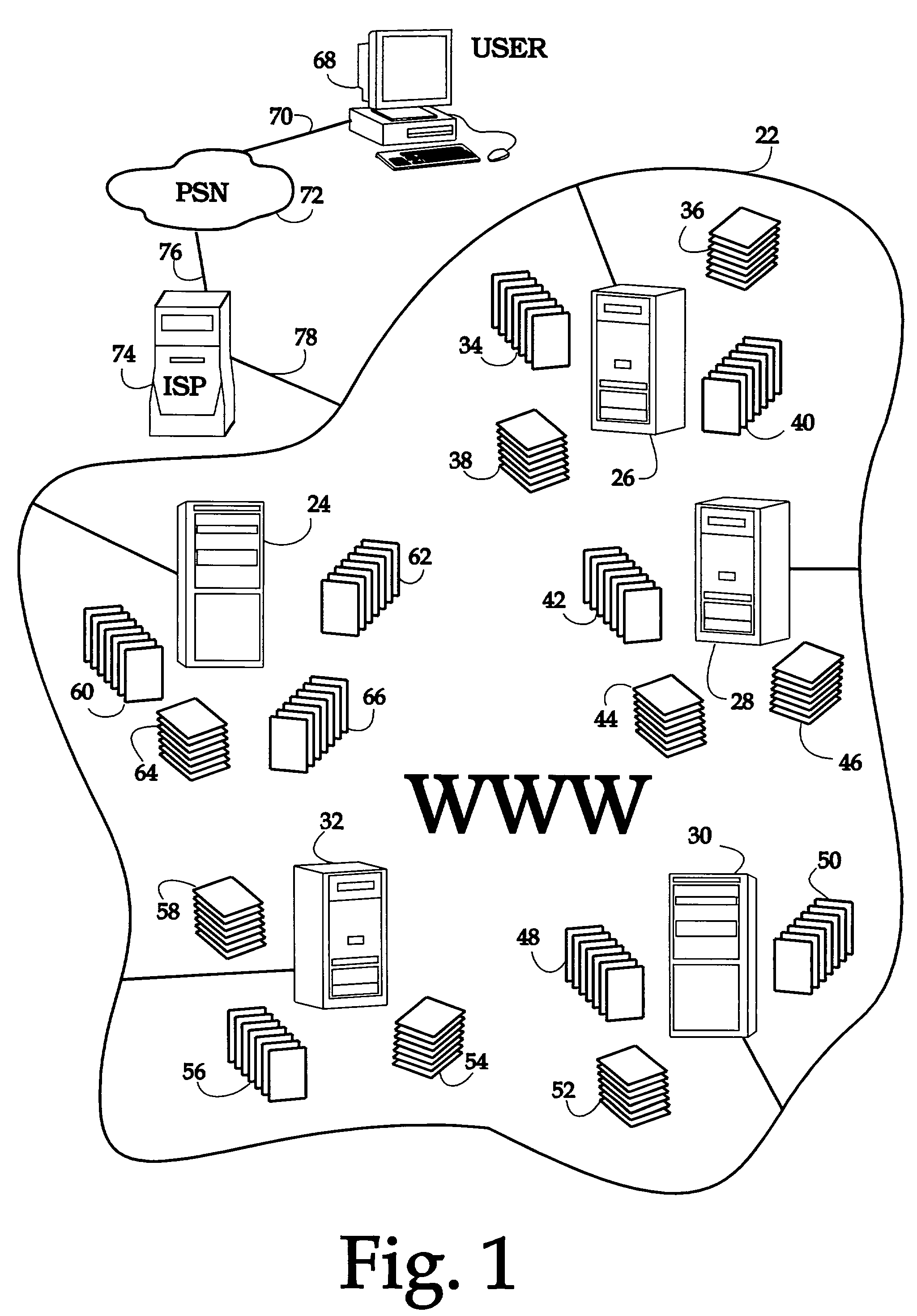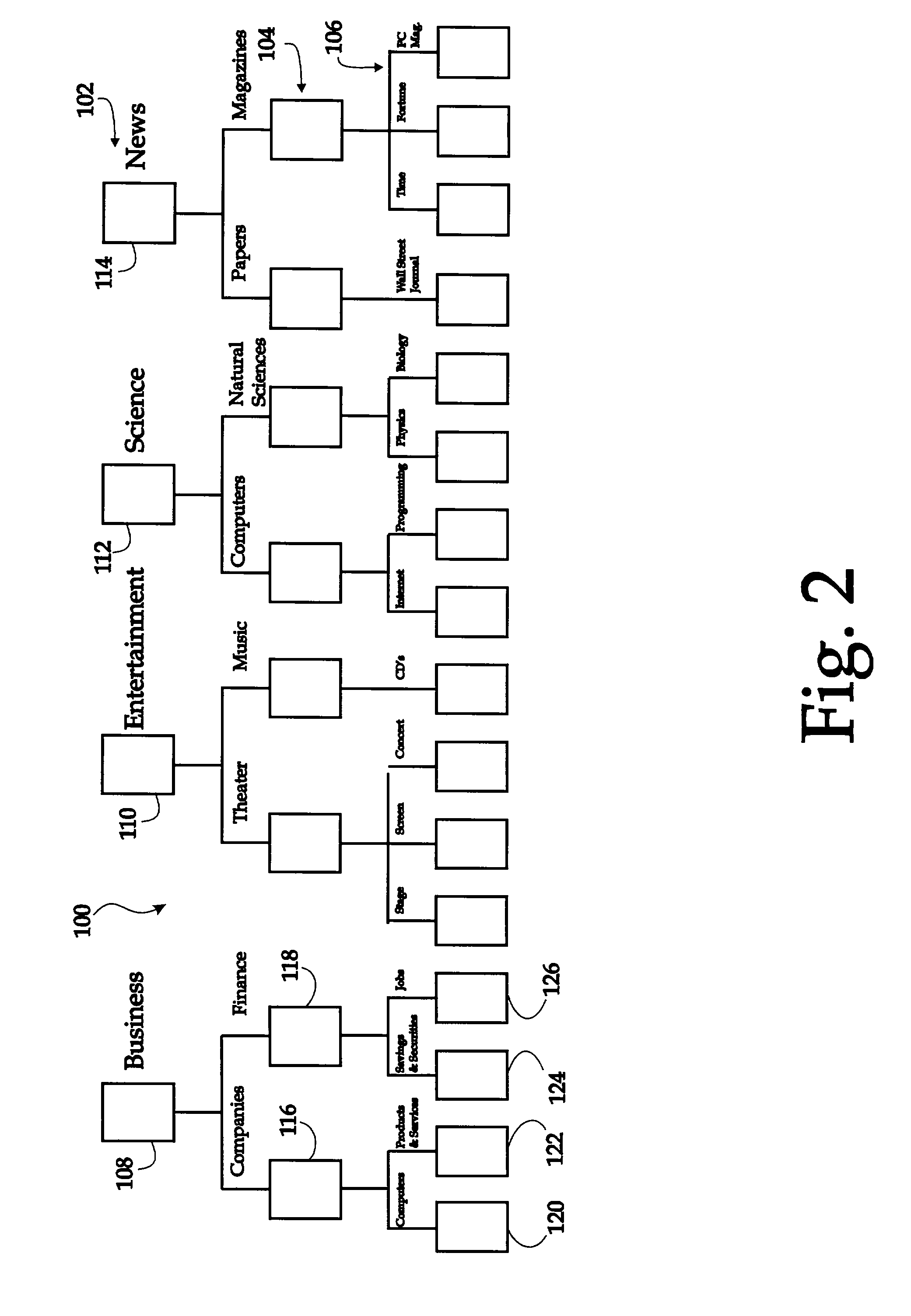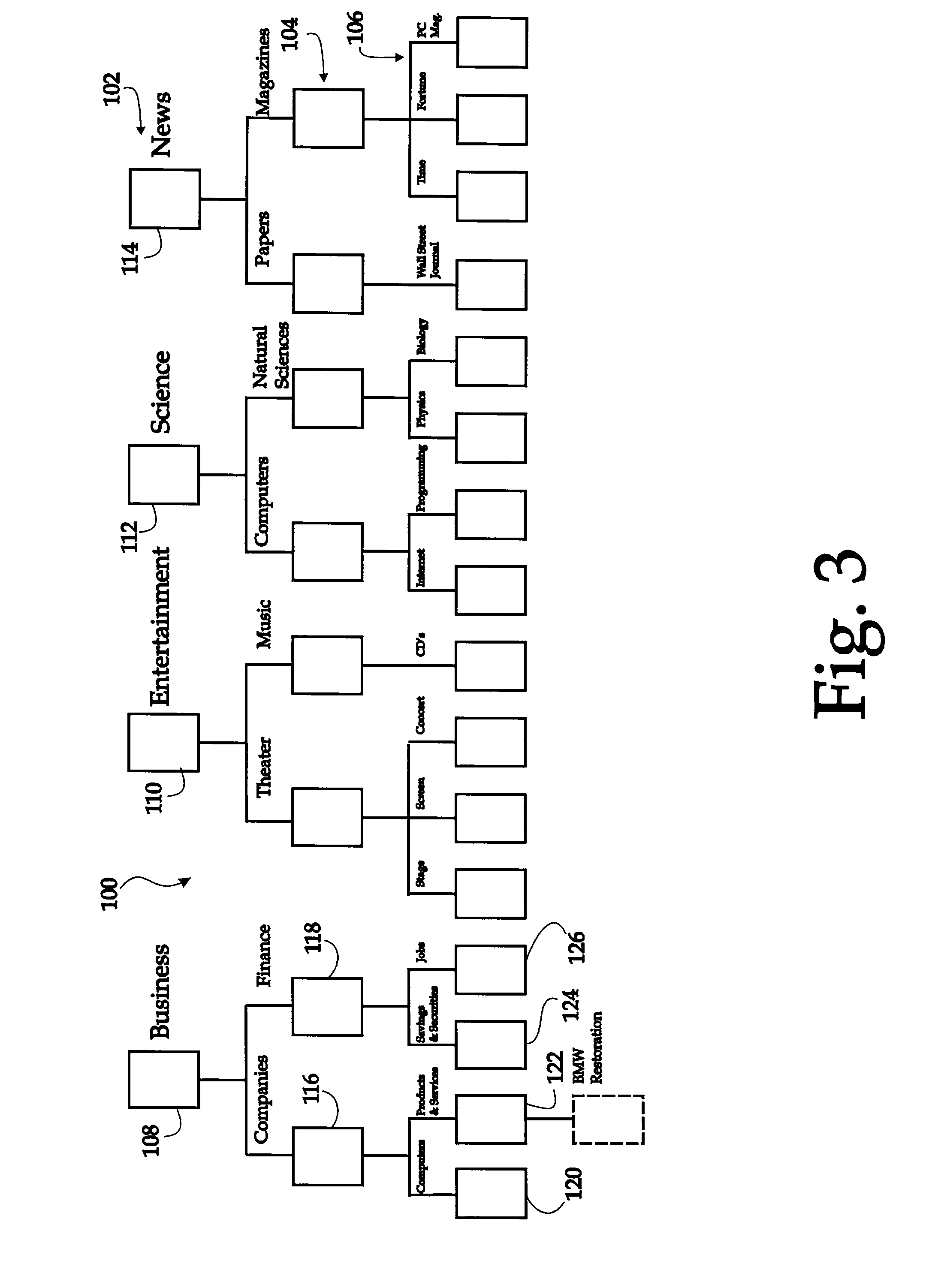Method for interactively creating an information database including preferred information elements, such as preferred authority, world
a technology of information database and database, applied in the field of interactive creation of information database, can solve the problems of unstudied decision-making falling from fashion, he is, at best, likely to be branded unconscientious or dumb, and one can experience comparable annoyance over even small items
- Summary
- Abstract
- Description
- Claims
- Application Information
AI Technical Summary
Benefits of technology
Problems solved by technology
Method used
Image
Examples
Embodiment Construction
[0050] As noted, the computer revolution has precipitated an information explosion, the fall out from which has settled on every aspect of human endeavor. The consequence of this explosion has been that now, substantially all cognitive process that we undertake call for some application of information to be effective. Nonetheless, despite this new need, it has become clear that the application of information to decision making has, typically, produced better and more satisfying results in substantially all aspects of our lives. From how we earning our salaries, to the how we spend them on the things we need and enjoy, information and the application of it has provided advantage.
[0051] However, while this explosive growth of information and need for its application has produced benefit, they have provided yet further demands on us for their management. As also noted, a yet additional and potentially even more perplexing problem that the need to apply information to our decision makin...
PUM
 Login to View More
Login to View More Abstract
Description
Claims
Application Information
 Login to View More
Login to View More - R&D
- Intellectual Property
- Life Sciences
- Materials
- Tech Scout
- Unparalleled Data Quality
- Higher Quality Content
- 60% Fewer Hallucinations
Browse by: Latest US Patents, China's latest patents, Technical Efficacy Thesaurus, Application Domain, Technology Topic, Popular Technical Reports.
© 2025 PatSnap. All rights reserved.Legal|Privacy policy|Modern Slavery Act Transparency Statement|Sitemap|About US| Contact US: help@patsnap.com



